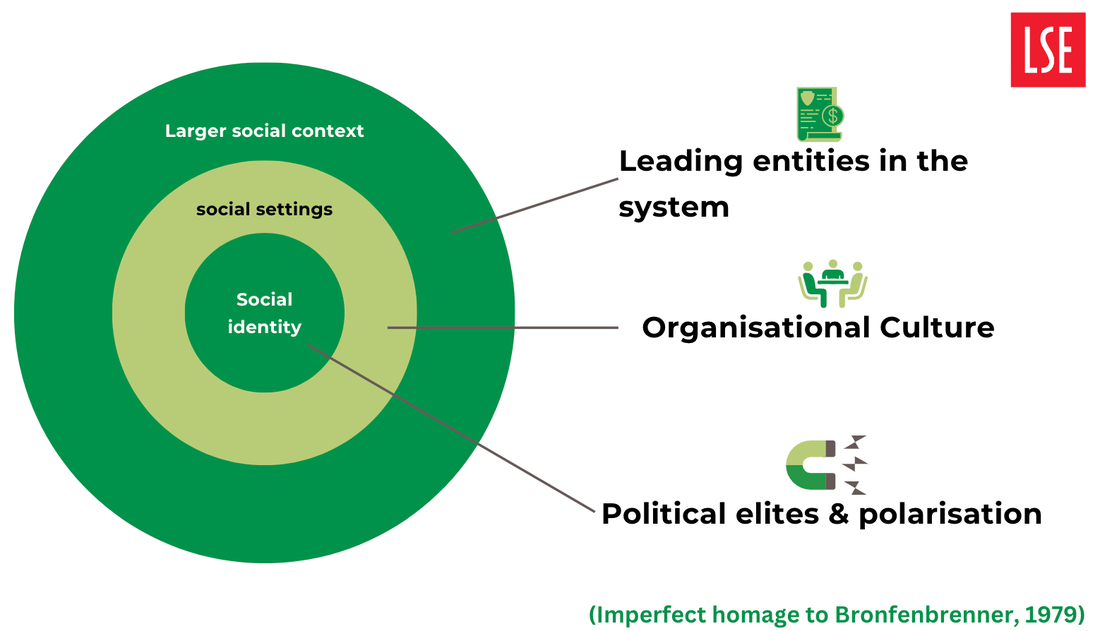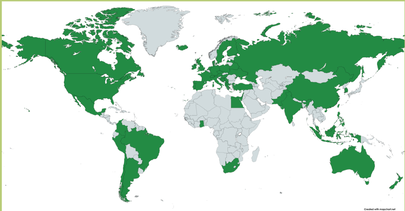Investigating collective action and inaction on climate changeI am a PhD student in social psychology at the London School of Economics and Political Science, and the Grantham Research Institute on Climate Change and the Environment. My work focusses on the collective dimensions of climate change.
I believe that climate change is one of the most important problems of our generation and links closely to social justice. Having lived in India, Singapore, the US and UK, I recognise how climate change impacts societies, and social groups within them, differentially. I am committed to taking and mobilising action on this issue the best way I know how–through research. Here's my CV. |
Climate change is a collective challenge– for better or for worse, we're all in this together.
My work asks, when does the collective nature of a crisis stall our efforts, and when does it motivate us to act?
1. How do the collectives we are embedded in shape our responses to social challenges like climate change?When it comes to collective crises like climate change, our responses are not only shaped by our interactions with others in our social groups, but also with broader institutional and structural entities in society. I am interested in how systemic entities impact individual responses to collective challenges. In my PhD, I investigate the norms through which institutions shape individual responses to climate change.
Political elites' involvement with intersectional movements can impact the extent to which we see climate action as normative for our social group and (therefore) consistent with our social identity. More broadly, we find that the environmental culture of our immediate social settings is more influential than even individual pro-environmental values in predicting whether we will act sustainably at work. Environmental culture consists of various institutional norms that enact organisational values of sustainability into behaviour. These include the norms of environmental commitment among leadership and co-workers, the prevalence of pro-environmental policies, the perceived normativity of organisational pro-environmental values, and the feasibility of incorporating sustainability in existing organisational procedures. Finally, at the broadest level, governments' and corporations' inaction on climate change might make us feel collectively licensed– permitted to remain inactive on climate change. We often use discourses about governments' and corporations' responsibility and inaction to justify not taking costly actions on climate change. |
2. What motivates individuals to take collective action on climate change?Others– prominent yet relatable individuals, as well as larger social groups are key to mobilising action.
We are mobilised by leaders such as Greta Thunberg, This is likely because they make us feel a sense of collective efficacy (or the feeling that working together, we can make a difference). We are also mobilised by social norms– not so much about what others are doing, but what they are feeling. Finding out that others are getting increasingly angry about climate change makes Americans across the political spectrum more supportive of climate action. This is likely because they pre-conform– anticipate that given others' anger, they are likely to be catapulted into action in the near future. |
|
3. What does environmental action look like in diverse contexts? Less than 1/3rd of the world lives in countries with complete political and civil liberties (Freedom House, 2023). This means that not all communities have access to the same methods of action and activism.
By working with activists, we developed context-specific methods of assessing collective action. Through this collaboration, we were able to identify crucial forms of activism that remain under-represented in research. These include "clicktivism", "signalling" and "radical activism". With fellow early career researchers, I am leading a manylabs project to understand moral licensing of pro-environmental behaviour across 50 countries. The project is ongoing but our one insight so far is that designing experiments that maintain rigour and uniformity, while honouring diversity is REALLY HARD! |
|
Get In Touch.
|
I thrive on discourse and collaborations so please get in touch. The best way to reach me is my email but feel free to explore other social media as well.
|
Anandita Sabherwal
 Social Psychology Researcher
London School of Economics and Political Science
[email protected]
Social Psychology Researcher
London School of Economics and Political Science
[email protected]




